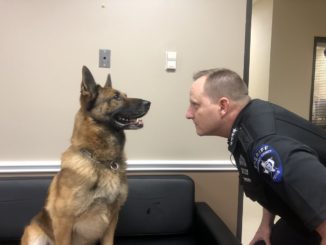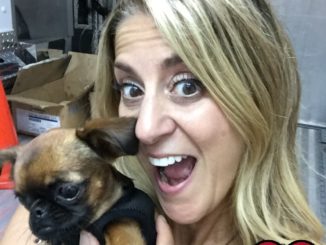
Bringing a pet into your home can be the equivalent of having a child. They instantly become a member of the family. Having a pet is a wonderful, lifelong experience.
Before getting a pet, it is imperative to consider, they can live well into their teens and beyond. It is important to be aware of the commitment being made.
Congratulations! Your family has made the decision to bring a pet home. To ensure things run smoothly, you will need to prepare for your new arrival.
The Pickles Project is here to help! We have enlisted the assistance of Dr. Alan Coren of West Hills Animal Hospital & Emergency Center (in Huntington, NY). We asked him to share guidelines and advice in preparing for your new family member.

Q & A with Dr. A. Coren:
Q: Do you suggest finding a veterinarian BEFORE getting a pet?
A: Since you will need to have a veterinarian as part of your new pet’s health care, it would make the most sense to have that (those) veterinarian (s) lined up in advance. It is far more stressful to find the right veterinarian when you are in an urgent situation.
Q: What advice do you give in finding a Veterinarian?
A: Although much of our society has focused on online reviews, I am a firm believer than word-of-mouth recommendations from friends and family give a far more accurate and fair analysis of a prospective veterinarian than online reviews. Once a veterinarian has been selected, there is value in visiting a website to learn a bit more about the veterinarian’s practice. The reality is a veterinarian can be great, but the support staff plays a very important role in your pet’s health care and is often the unsung heroes!
Q: Once that owner finds the perfect pet, what are the first steps they need to take?
A: I generally recommend that people make an appointment with their veterinarian within a few days or a week of acquiring their new companion. This is provided the new dog owner has already done a fair amount of homework on basic non-medical care. A complete medical history to include dates of administration of any vaccines or medications will be important for your veterinarian to review on or before that first visit. Prior to that first visit, the dog should be monitored closely for any sneezing, coughing, vomiting or diarrhea as well as appetite. If you have a small and young puppy you must realize that you are dealing with an “infant” who does not have very developed body reserves and immune defenses. Puppies need to eat small meals frequently – at least 3x/day. Seek veterinary attention right away as a puppy can decline very quickly in the face of significant clinical signs of illness. Don’t wait!!!
Q: When at the Vet, what questions should the owner be asking, and in turn, what should the Vet be addressing?
A: The first visit will set the schedule for future visits. Puppy needs will be different and more comprehensive than adult dogs. The discussions should focus on nutrition, appropriate vaccinations based on anticipated lifestyle, parasite preventions (fleas, ticks, heartworm, intestinal parasites), exercise, insurance, and spaying and neutering, and costs of veterinary care (this actually should have been explored before adopting a dog).
You should also be asking about hospital services, hours of operation, what happens with an emergency and is there 24-hour care with licensed professionals. It is better to know these things in advance before you find yourself in need of such services. Many of these questions should have been answered when you did your homework in choosing a vet, but it is still best to confirm.
Q: What are the signs that your new puppy may be ill?
A: Poor appetite, coughing, sneezing, vomiting, diarrhea, excessive scratching or itching, pronounced lethargy even when first waking up, awkward mobility, blood in the urine or feces would all be symptoms of interest. Remember puppies are like infants and so they sleep a lot but when they are awake, they should be active and playful.
Q: What are the steps to take if you are bringing home an older dog, new to your home? Do you advise anything different?
A: If you are bringing an older dog into your home, unless you know how well trained the dog is, you should “puppy proof” your home as if you were adopting a young dog. Do not allow the full run of the house until you are certain the dog is housebroken and not destructive. Provide a comfortable bed and some safe toys to make the introduction to your home more enticing. As you may not know a lot about your new dog, go slowly with them as you make adjustments. Imagine your new dog is probably a little scared and uncertain and intimidated. Be very supportive and give it time to adjust to its new lifestyle.
If you already have a dog and a new dog is brought into your home regardless of age, you must always pay extra attention to your original dog so they do not feel slighted or that they are being replaced. While it is human nature to pay extra attention to the new acquisition, please realize that any attention you are giving the new dog will likely be way more than they are accustomed to anyway. Let the dogs meet and interact at their own pace. It is likely that the new dog will be overly engaging and your original dog will want to go slower. Make sure their play is supervised and until you are confident that they have developed a nice relationship, they should have separate sleeping quarters. The process of introduction can be as long as a month or more, so be patient and supportive. It usually works out quite well.
Q: Any other advice for new pet owners?
A: When making the decision to bring a pet into your home please approach this with the same sense of responsibility you would have when deciding whether or not to have a child. Your new pet will remain dependent on you for its entire life. Make sure you have a 15-20 year horizon if adopting a puppy or kitten. Make sure you have the time to devote to this special relationship and are financially and emotionally prepared to make this commitment. Please don’t get a dog or cat because your children want one and they promise to take care of it. The reality is it is going to be your pet and your responsibility. When your children grow up and are involved with so many other activities their involvement will diminish and that is understandable. Just make sure that you are prepared for that. Pet ownership is one of the most precious relationships we will enjoy in our lives. Just be prepared and realistic with your expectations.
 For more discussion, be sure to head to our Social Media pages!
For more discussion, be sure to head to our Social Media pages!




Leave a Reply